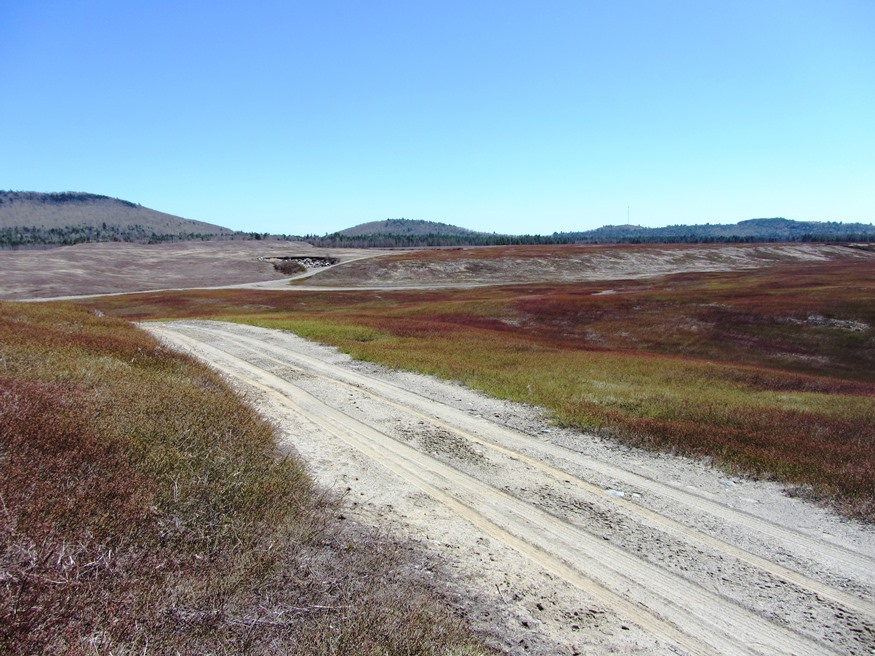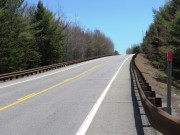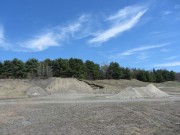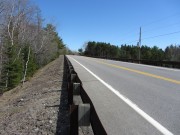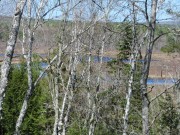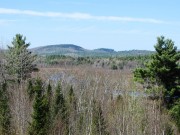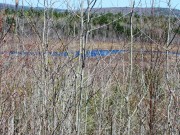The town of Aurora is home to two geologic features created by ancient glaciers.
Silsby Plain
This feature is an example of geologic deltas, which are formed where streams produced by melting ice enter a body of water. The Silsby Plain was a delta deposited into a narrow marine inlet when the sea was at its maximum inland extent in what is now a blueberry barren in Aurora.
Soil on the Plain is sandy to a depth of about twenty-five feet, ideal for wild blueberries. The next twenty feet, before hitting bedrock, consists of a mixture of pockets of clay, gravel, sand, silt, and boulders (in geologic terms “till”).
After a short drive through the woods on a dirt road, the view opens to the expansive, and in the spring – red – plain.
The Whales Back
The ridge, also known as The Whalesback, was created by a glacier. This esker is a long, high space rising 75 feet above a glacial plain that is now a wetland and channel for the Middle Branch of the Union River. Route 9 travels atop the two and one half mile ridge but the river is often hidden by the trees on the east side.
Additional resources
Neil, Craig D., Daniel B. Locke, and William J. Nichols, Jr. “Hydrology and Water Quality of Significant Sand and Gravel Aquifers in parts of Hancock, Penobscot, and Piscataquis Counties, Maine.” Maine Geological Survey. Department of Conservation. 1998. http://www.maine.gov/doc/nrimc/mgs/pubs/online/water/98-57.pdf (accessed May 13, 2013)


